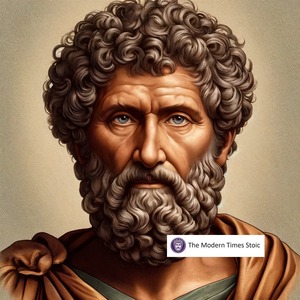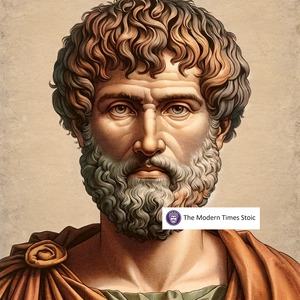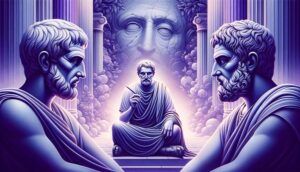Table of Contents
What is Stoicism?
Stoicism is a school of Hellenistic philosophy that teaches the development of self-control and fortitude as a means to overcome destructive emotions. It is not just a set of ethical beliefs but also includes logical and physical theories. The Stoics believed that a fundamental principle, which they referred to as the ‘Logos,’ governs the universe and that human beings must live in accordance with this rational structure.
How Religions Typically Function
Religions generally feature a structured set of beliefs about the cosmos, including its origin, purpose, and often an overseeing deity or deities. They usually include rituals, moral codes, and the promise of a future afterlife or spiritual legacy. Community worship and congregational practices also play significant roles.
Comparing Stoicism with Religion
Similarities:
- Moral and Ethical Guidelines: Both Stoicism and many religions provide a strong framework for ethics and morals.
- Philosophical and Metaphysical Elements: Stoicism and religious systems often offer explanations for human existence and the universe.
Differences:
- Deity Worship: Unlike most religions, Stoicism does not involve the worship of a deity. While it posits the existence of a rational order (Logos), this is not personalized or deified in the way gods are in religious contexts.
- Rituals and Practices: Stoicism lacks the formal rituals and ceremonies that characterize most religions. Its practices are more introspective and personal, focused on self-improvement through mental discipline.
- Organizational Structure: Religions often have hierarchical structures and collective practices, whereas Stoicism is primarily an individual pursuit.
Conclusion: Is Stoicism a Religion?
Considering the definitions and functions of traditional religions, Stoicism does not neatly fit the category. While it shares some philosophical underpinnings with religious beliefs and offers a robust ethical framework, its lack of deification, communal worship, and ritual practices sets it apart. Stoicism is better described as a philosophy or a way of life focused on personal ethics and mental resilience.
Stoicism teaches valuable lessons and provides tools for emotional and psychological health, which can complement religious beliefs or stand alone as secular philosophical guidance. Whether you consider it a religion or not, its principles can contribute profoundly to a well-rounded, reflective, and stable life.







